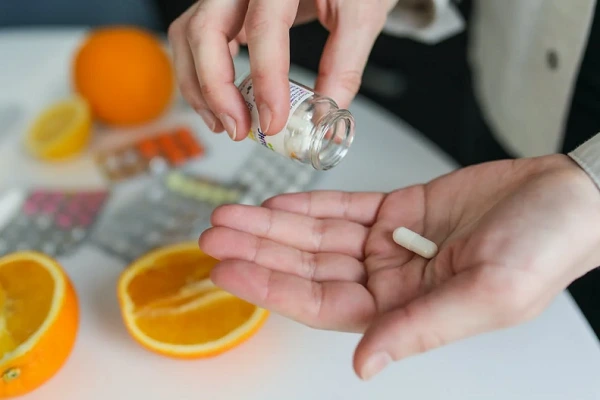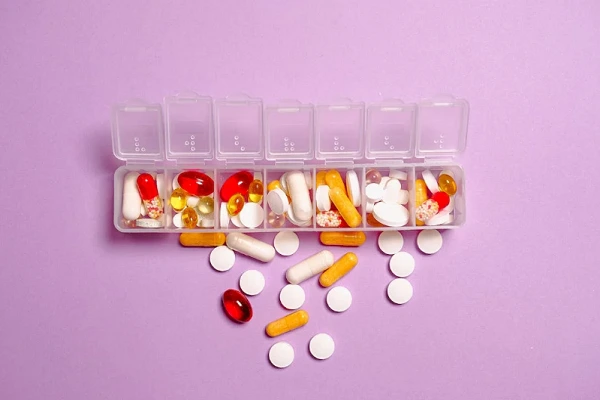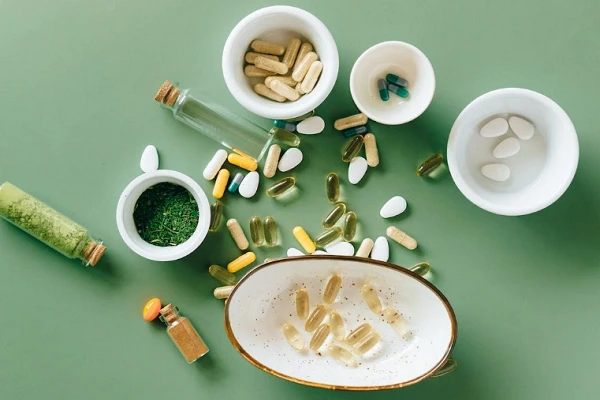Introduction
Attention Deficit Hyperactivity Disorder (ADHD) is a common disorder among children and adolescents, and is often treated with medication. However, recent research has found that medication does not necessarily help children with ADHD learn better. This research has been conducted by a variety of experts in the field, and has revealed that medication may not be the best option for treating ADHD in children. This article will discuss the findings of this research, and explore the implications of these findings for parents and educators.

The Pros and Cons of Medication for ADHD in Children
Medication for Attention Deficit Hyperactivity Disorder (ADHD) in children is a controversial topic. On one hand, it can be an effective way to manage the symptoms of ADHD, but on the other hand, it can have serious side effects. This article will discuss the pros and cons of medication for ADHD in children.
The Pros
The primary benefit of medication for ADHD in children is that it can help to reduce the symptoms of the disorder. Stimulant medications, such as Ritalin and Adderall, are the most commonly prescribed medications for ADHD. These medications can help to improve focus, reduce impulsivity, and improve overall functioning. In addition, these medications can help to reduce the risk of developing other mental health issues, such as depression and anxiety.
The Cons
The primary downside of medication for ADHD in children is the potential for side effects. Stimulant medications can cause insomnia, decreased appetite, and irritability. In addition, long-term use of these medications can lead to physical and psychological dependence. Finally, there is a risk of serious side effects, such as heart problems and liver damage.
Conclusion
Medication for ADHD in children can be an effective way to manage the symptoms of the disorder, but it is important to weigh the potential risks and benefits before making a decision. It is important to talk to a doctor about the potential side effects and to monitor the child’s response to the medication. Ultimately, the decision to use medication should be made on an individual basis.
Exploring the Impact of Medication on ADHD in Children
Attention Deficit Hyperactivity Disorder (ADHD) is a common neurodevelopmental disorder that affects millions of children worldwide. It is characterized by difficulty paying attention, hyperactivity, and impulsivity. Medication is often prescribed to help manage the symptoms of ADHD in children. However, it is important to understand the potential impact of medication on children with ADHD.
Medication is often used to help reduce the symptoms of ADHD in children. Stimulant medications, such as methylphenidate and amphetamine, are the most commonly prescribed medications for ADHD. These medications work by increasing the levels of dopamine and norepinephrine in the brain, which can help improve focus and reduce hyperactivity and impulsivity.
While medication can be effective in reducing the symptoms of ADHD, it is important to consider the potential side effects. Common side effects of stimulant medications include decreased appetite, difficulty sleeping, and irritability. In some cases, these medications can also cause more serious side effects, such as increased blood pressure and heart rate. It is important to discuss the potential risks and benefits of medication with a doctor before starting any treatment.
In addition to the potential side effects of medication, it is important to consider the long-term impact of medication on children with ADHD. Studies have shown that stimulant medications can help improve academic performance and reduce disruptive behaviors in the short-term. However, there is limited evidence to suggest that these medications have a long-term impact on academic performance or behavior.
Finally, it is important to consider the potential impact of medication on a child’s overall development. While medication can help reduce the symptoms of ADHD, it is important to remember that it does not address the underlying causes of the disorder. Therefore, it is important to consider other treatments, such as behavioral therapy, to help address the underlying causes of ADHD.
In conclusion, medication can be an effective treatment for ADHD in children. However, it is important to consider the potential side effects and long-term impact of medication before starting any treatment. It is also important to consider other treatments, such as behavioral therapy, to help address the underlying causes of ADHD.
Examining the Evidence: Does Medication Help Kids With ADHD Learn Better?
Attention Deficit Hyperactivity Disorder (ADHD) is a common neurodevelopmental disorder that affects millions of children and adults worldwide. It is characterized by difficulty paying attention, impulsivity, and hyperactivity. Many children with ADHD struggle in school, and as a result, medication is often prescribed to help them focus and improve their academic performance. But does medication really help kids with ADHD learn better?
To answer this question, it is important to examine the evidence. Studies have shown that medication can be effective in reducing the symptoms of ADHD, such as impulsivity and hyperactivity. This can lead to improved concentration and better academic performance. For example, one study found that children with ADHD who took medication had significantly higher scores on standardized tests than those who did not take medication.
However, it is important to note that medication is not a cure-all for ADHD. While it can help reduce symptoms and improve academic performance, it is not a substitute for other interventions such as behavioral therapy and lifestyle changes. Additionally, there are potential side effects associated with medication, such as decreased appetite, sleep problems, and irritability. Therefore, it is important to discuss the risks and benefits of medication with a doctor before starting any treatment.
In conclusion, medication can be an effective tool for helping children with ADHD learn better. However, it is important to consider the potential risks and benefits before starting any treatment. Additionally, medication should be used in conjunction with other interventions such as behavioral therapy and lifestyle changes.

The Role of Parents in Deciding Whether to Medicate ADHD in Children
Parents play a critical role in deciding whether to medicate Attention Deficit Hyperactivity Disorder (ADHD) in their children. ADHD is a neurodevelopmental disorder that affects a person’s ability to focus, control impulses, and manage emotions. It is most commonly diagnosed in children, and can have a significant impact on their academic and social functioning.
When considering whether to medicate a child with ADHD, parents should first consult with a qualified mental health professional. This professional can provide an accurate diagnosis and discuss the various treatment options available. Medication is often prescribed to help manage the symptoms of ADHD, but it is important to note that it is not the only option. Other treatments, such as behavioral therapy, can be effective in managing the disorder.
Parents should also consider the potential side effects of medication. Stimulant medications, which are commonly prescribed for ADHD, can cause insomnia, decreased appetite, and irritability. Non-stimulant medications can cause fatigue, nausea, and headaches. Parents should discuss these potential side effects with their child’s doctor before deciding to medicate.
It is also important for parents to consider the long-term effects of medication. While medication can be effective in managing the symptoms of ADHD, it is not a cure. It is important to note that medication does not address the underlying causes of the disorder, and it is possible that the symptoms may return when the medication is stopped.
Ultimately, the decision to medicate a child with ADHD is a personal one. Parents should weigh the potential benefits and risks of medication and discuss their concerns with their child’s doctor. With the right information and support, parents can make an informed decision that is best for their child.
Exploring Alternative Treatments for ADHD in Children
Attention Deficit Hyperactivity Disorder (ADHD) is a common neurodevelopmental disorder that affects children and adolescents. It is characterized by difficulty paying attention, hyperactivity, and impulsivity. While medication is the most common treatment for ADHD, there are a number of alternative treatments that may be beneficial for children with the disorder.
One alternative treatment for ADHD is cognitive behavioral therapy (CBT). CBT is a type of psychotherapy that focuses on helping individuals identify and change negative thought patterns and behaviors. It can help children with ADHD learn to better manage their symptoms and improve their functioning.
Another alternative treatment for ADHD is neurofeedback. Neurofeedback is a type of biofeedback that uses EEG technology to measure brain activity. It can help children with ADHD learn to regulate their own brain activity, which can help them better manage their symptoms.
Dietary changes can also be beneficial for children with ADHD. Eliminating certain foods from the diet, such as processed foods, sugar, and artificial additives, can help reduce symptoms. Additionally, adding certain foods, such as omega-3 fatty acids, can help improve focus and concentration.
Exercise is another alternative treatment for ADHD. Regular physical activity can help improve focus and concentration, as well as reduce hyperactivity and impulsivity.
Finally, mindfulness and relaxation techniques can be beneficial for children with ADHD. Mindfulness involves focusing on the present moment and being aware of one’s thoughts and feelings. Relaxation techniques, such as deep breathing and progressive muscle relaxation, can help reduce stress and anxiety.
In conclusion, there are a number of alternative treatments for ADHD in children. While medication is the most common treatment, alternative treatments such as cognitive behavioral therapy, neurofeedback, dietary changes, exercise, and mindfulness and relaxation techniques can be beneficial for children with the disorder.
The Benefits of Behavioral Therapy for ADHD in Children
Attention Deficit Hyperactivity Disorder (ADHD) is a common neurodevelopmental disorder that affects children and adolescents. It is characterized by difficulty in paying attention, impulsivity, and hyperactivity. Behavioral therapy is an effective treatment for ADHD in children. It can help children learn to manage their symptoms and improve their functioning in school, at home, and in social situations.
Behavioral therapy is a type of psychotherapy that focuses on changing behaviors and teaching new skills. It is based on the idea that behaviors are learned and can be changed through practice and reinforcement. In the case of ADHD, behavioral therapy can help children learn to manage their symptoms and improve their functioning in various areas of life.
Behavioral therapy can help children with ADHD learn to pay attention, stay organized, and complete tasks. It can also help them learn to control their impulses and manage their emotions. Through the use of rewards and consequences, children can learn to recognize and respond to their own behavior. This can help them develop better self-control and self-regulation.
Behavioral therapy can also help children with ADHD develop better social skills. Through role-playing and other activities, children can learn to interact with others in a more appropriate way. This can help them make and maintain friendships, as well as improve their relationships with family members.
Finally, behavioral therapy can help children with ADHD develop better problem-solving skills. Through the use of cognitive-behavioral techniques, children can learn to identify and address problems in a more effective way. This can help them become more independent and better able to manage their own behavior.
Overall, behavioral therapy is an effective treatment for ADHD in children. It can help children learn to manage their symptoms and improve their functioning in various areas of life. With the help of a qualified therapist, children can learn to recognize and respond to their own behavior, develop better social skills, and develop better problem-solving skills.

Understanding the Side Effects of Medication for ADHD in Children
Attention Deficit Hyperactivity Disorder (ADHD) is a common condition among children that can cause difficulty in focusing, hyperactivity, and impulsivity. Medication is often prescribed to help manage the symptoms of ADHD in children. While medication can be an effective treatment for ADHD, it is important to understand the potential side effects that may occur.
The most common side effects of medication for ADHD in children include decreased appetite, difficulty sleeping, headaches, stomachaches, and irritability. Decreased appetite is a common side effect of stimulant medications, such as methylphenidate and amphetamine. These medications can cause a decrease in appetite, which can lead to weight loss. Difficulty sleeping is another common side effect of stimulant medications. These medications can cause difficulty falling asleep or staying asleep, which can lead to fatigue and difficulty concentrating. Headaches, stomachaches, and irritability are also common side effects of stimulant medications.
In addition to the common side effects of medication for ADHD in children, there are also some rare but serious side effects that can occur. These include an increase in blood pressure and heart rate, as well as changes in mood and behavior. It is important to be aware of these potential side effects and to discuss them with your doctor if they occur.
It is important to remember that medication for ADHD in children can be an effective treatment for managing symptoms. However, it is also important to be aware of the potential side effects that may occur. If you have any concerns about the side effects of medication for ADHD in children, it is important to discuss them with your doctor.
Examining the Impact of Diet and Exercise on ADHD in Children
Attention Deficit Hyperactivity Disorder (ADHD) is a common neurodevelopmental disorder that affects millions of children worldwide. It is characterized by difficulty paying attention, hyperactivity, and impulsivity. While there is no cure for ADHD, there are a variety of treatments available to help manage the symptoms. One such treatment is diet and exercise.
Recent studies have shown that diet and exercise can have a positive impact on ADHD symptoms in children. A balanced diet that is low in sugar and processed foods can help to reduce hyperactivity and impulsivity. Eating a variety of fruits, vegetables, and whole grains can also help to improve focus and concentration. Additionally, regular physical activity can help to reduce hyperactivity and improve focus.
It is important to note that diet and exercise alone are not enough to treat ADHD. They should be used in conjunction with other treatments such as medication and behavioral therapy. Additionally, it is important to consult with a doctor before making any changes to a child’s diet or exercise routine.
In conclusion, diet and exercise can have a positive impact on ADHD symptoms in children. While they should not be used as a replacement for other treatments, they can be used in conjunction with them to help manage the symptoms of ADHD. It is important to consult with a doctor before making any changes to a child’s diet or exercise routine.
Q&A
1. What research has found about the effectiveness of medication for children with ADHD?
Research has found that medication does not necessarily help children with ADHD learn better. While medication can help reduce symptoms of ADHD, such as hyperactivity and impulsivity, it does not necessarily improve academic performance or learning.
Conclusion
In conclusion, research has found that medications do not help children with ADHD learn better. While medications may help to reduce symptoms of ADHD, they do not improve learning outcomes. Therefore, it is important to focus on other strategies such as behavior modification, cognitive-behavioral therapy, and educational interventions to help children with ADHD learn better.

